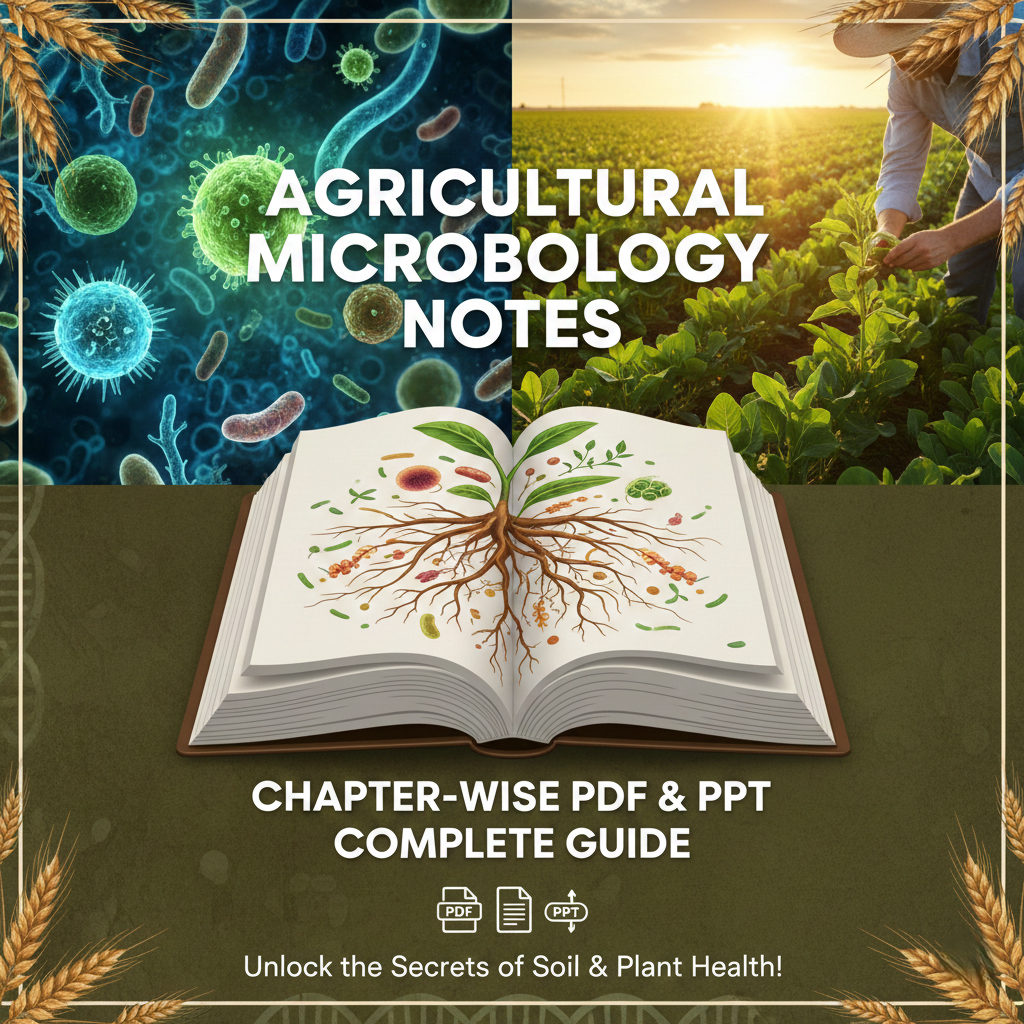Most Importent Questions for ICAR-JRF, Plant Pathology, Plant Science, Genetic, BHU, Pre-PG, AFO, NABARD, IFFCO, ADO, B.sc. Agri.IBPS-SO/AFO, etc. All agri-exams.
Importance
Questions
90%
Ans
a
Q.1 Enzymes respons ib le for a lcoholic fermentation
a. Ketolase
b. Zymase
c. Peroxidase
d. Oxidase
b
Q.2. The image obtained in a compound microscope is
a. Real
b. Virtual
c. Real inverted
d. Virtual inverted
b
Q.3. Direct microscopic count can be done with the aid of
a. Neuberg chamber
b. Anaerobic chamber
c. Mineral oil
d. Olive oil
a
Q.4. Which one of the following fungi is the most serious threat in a bone marrow transplant unit?
a. Candida albicans
b. Aspergillus
c. Blastomyces
d. Cryptococus
b
Q.5. Fixation of atmospheric nitrogen is by means of
a. Biological process
b. Lightining
c. Ultraviolet light
d. All of the above
d
Q.6. In a fluorescent microscope the objective lens is made of
a. Glass
b. Quartz
c. Polythene
d. None of these
c
Q.7. Salt and sugar preserve foods because they
a. Make them acid
b. Produce a hypotonic environment
c. Deplete nutrients
d. Produce a hypertonic environment
d
Q.8. Pick out the vector using in human Genome project
a. Phagemid vector
b. Yeast artificial chromosomes
c. Cosmid vectors
d. Yeast episomal plasmids
b
Q.9. The light emitted by luminescent bacteria is mediated by the enzyme
a. Coenzyme
b. Luciferase
c. Lactose dehydrogenase
d. Carboxylase reductase
c
Q.10. The first antibody to contact invading microorganisms was
a. IgG
b. IgM
c. IgA
d. IgD
b
Q.11. Spirulina belongs to
a. Xanthophyceae
b. Cyanophyceae
c. Rhodophyceae
d. Pheophyceae
b
Q.12. Who provide the evidence that bacteriophage nucleic acid but not protein enters the host cell during infection
a. Alfred D.Hershey & Leonard Tatum in 1951.
b. Alfred D.Hershey & Zindar Lederberg in 1951.
c. Alfred D.Hershey & Martha Chase in 1952.
d. Alfred D.Hershey & Macleod in 1952.
c
Q.13. On soybean which of the following forms symbiotism
a. Azatobactor paspali
b. Rhizobium
c. Nostoc
d. Bradyrhizobium
d
Q.14. The symptome “ general feeling of illness and discomfort “ is called
a. Cystitis
b. Malaise
c. Anaphylactic shock
d. Arthritis
b
Q.15. Reverse isolation would be appropriate for
a. a patient with tuberculosis
b. a patient who has had minor surgery
c. a patient with glaucoma
d. a patient with leukemia
a
Q.16. Who demonstrated that open tubes of broth remained free of bacteria when air was free of dust.
a. Abbc Spallanzani
b. John Tyndall
c. Francisco Redi
d. Pasteur
b
Q.17. During Bio Geo chemical cycle some amount of elemental carbon was utilized by the microorganisms. The phenomenon is called as
a. Dissimilation
b. Immobilization
c. Decomposition
d. Neutralization
b
Q.18. The principle light- trapping pigment molecule in plants, Algae, and cyanobacteria is
a. Chlorophyll a
b. Chlorophyll b
c. Porphyrin
d. Rhodapsin
a
Q. 19. “I found floating therin earthly particles, some green streaks, spirally wound serpent-wise, and orderly arranged, the whole circumstance of each of these streaks was abut the thickness of a hair on one’s head”…. These words are of
a. Leeuwenhoek
b. A. Jenner
c. Pasteur
d. Koch
a
Q.20. According to Pasteur statements which one of the following is true
a. Living organisms discriminate between stereoisomers
b. Fermentation is a aerobic process
c. Living organisms doesn’t discriminate between stereoisomers
d. Both a and b
a
Q.21. Electron microscope gives magnification upto
a. 100 X
b. 2000 X
c. 50,000 X
d. 2,00,000 X
d
Q.22. Term vaccine was coined by
a. Robert Koch
b. Pasteur
c. Needham
d. None of these
b
Q.23. The inventor of the Microscope is
a. Galileo
b. Antony von
c. Pasteur
d. Koch
b
Q.24. First Pasteur conducted fermentation experiments in
a. Milk
b. Food material
c. Fruit juices
d. Both a and c
c
Q.25. Modern concepts of chemotherapy was proposed by
a. Paul Ehrlich
b. Joseph Lister
c. Elie Metchnikoff
d. None of these
a
Q.26. The role of phagocytosis was discovered by
a. Paul Ehrlich
b. Joseph lister
c. Elie Metchikoff
d. Pasteur
c
Q.27. L – forms are discovered by
a. Klein Berger
b. Louis Pasteur
c. Robert Koch
d. Antony von Leeuwenhock
a
Q.28. The causative organism of rocky mountain spotted fever was first described by
a. Howard Ricketts
b. da Rocha-lima
c. Both a and b
d. Robert Koch
c
Q.29. The term bacteriophage was coined by
a. De’Herelle
b. F.W. Twort
c. Beijernick
d. Jwanosky
a
Q.30. Viral infection of bacteria was discovered by
a. De’Herelle
b. F.W. Twort
c. Beijernick
d. Jwanoksy
b
Q.31. Eye cannot resolve any image less than
a. 1ìm
b. 2ìm
c. 7ìm
d. 5ìm
d
Q.32. Compound Microscope was discovered by
a. A.V. Lewenhoek
b. Pasteur
c. Janssen and Hans
d. None of these
c
Q.33. Electron Microscope was discovered by
a. Prof. Fritz
b. Janssen and Hans
c. Knoll and Ruska
d. None of these
c
Q.34. Magnification range of light microscope is
a. 1000x – 5000x
b. 1000x – 2000x
c. 500x – 1000x
d. None of these
b
Q.35. Condensation of light in light Microscope is by
a. Objective
b. Condensor
c. Ocular
d. All of these
b
Q.36. Light gathering capacity of Microscope is called
a. Numerical aperture
b. Angular aperture
c. Both a and b
d. None of these
a
Q.37. If 10x and 40x objectives are used (air is the medium), the numerical aperture is
a. 1.5
b. 2.0
c. 1.0
d. 1.8
c
Q.38. The ability of Microscope to distinguish two objects into two separate objects, is called.
a. Resolving power
b. Wave length
c. N.A.
d. None of the
a
Q.39. Limit of resolution of compound microscope is
a. 0.018 Ao
b. 0.1 mm
c. 5 ìm
d. 1 mm
b
Q.40. Source of light in fluorescence microscopy is from
a. Mercury lamp
b. Sunlight
c. Both a and b
d. None of these
a








